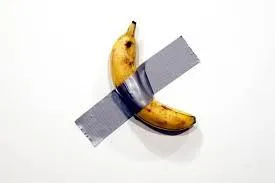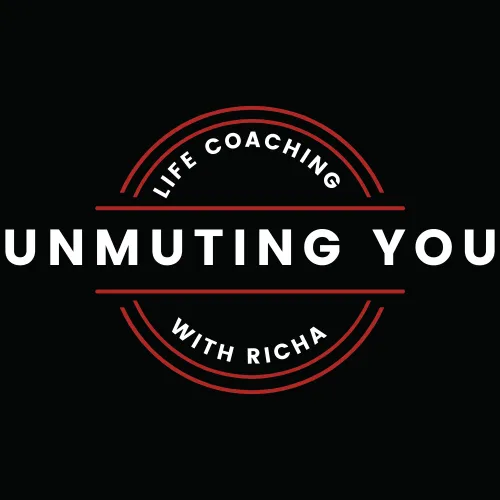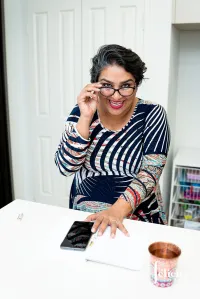
Two Bananas. Two Economies. One Glaring Injustice.

Last week, a banana taped to a wall sold for $6.2 million USD (which is approximately $9.3 million AUD) at Sotheby’s. Just outside the same prestigious auction house, a Bangladeshi fruit seller sold bananas for $0.35 each.
Two bananas. Two economies. One glaring question: How have we allowed wealth to concentrate so absurdly that some tape bananas to walls while others struggle to afford basic dignity?
This isn’t just a story about art. It’s a snapshot of systemic inequity—and a call to action.
The numbers speak volumes:
The richest 1% own nearly half of the world’s wealth, while the bottom 50% of the population owns less than 2% (Credit Suisse, 2023).
Closing the global poverty gap would cost just $350 billion annually, less than 1% of the collective wealth held by billionaires (United Nations).
Global tax abuse by corporations and the ultra-rich costs governments $427 billion annually, siphoning funds that could support critical services like healthcare, education, and infrastructure (Tax Justice Network, 2022).
Oxfam International (2023): The pandemic created a billionaire every 30 hours while a million people were pushed into poverty at the same rate.
These statistics are more than numbers—they’re a reflection of priorities. Wealth inequality isn’t just an economic issue—it’s a moral and systemic one. It’s about the systems that allow wealth to flow upwards while millions struggle to survive.
This isn’t just about art. The banana at Sotheby’s symbolizes how wealth is wielded, flaunted, and hoarded. It starkly contrasts the reality faced by millions worldwide—those who would take decades to earn the cost of one "artistic" banana.
Wealth inequality isn’t an isolated economic issue. It’s a systemic failure that trickles into every corner of our lives, perpetuating cycles of poverty and privilege.
Here's why Why This Matters to Me (And Should Matter to All of Us)
As a Justice, Equity, Diversity, and Inclusion (JEDI) practitioner, I confront these systemic inequities daily. My work isn’t about surface-level fixes—it’s about dismantling the barriers that keep entire communities from accessing opportunity, dignity, and fairness. I see the ripple effects of inequity in workplaces, communities, and everyday interactions. If the wealthy and tax-exempt corporations truly cared about justice, the impact we could create would be transformational.
What’s infuriating is the potential we’re wasting. Imagine a world where the ultra-wealthy and tax-exempt corporations actively contributed to systemic change:
Millions of children could access quality education.
Food security could be achieved for vulnerable communities.
Climate change could be tackled through sustainable infrastructure.
The Sotheby’s banana sale tells us something deeper: Our world reflects the values we allow. Right now, it’s telling us that a banana taped to a wall is worth $6.2 million—but a human being’s right to food, shelter, and equity is still up for debate.
But this is what I ask you to consider:
How can we demand accountability from the ultra-rich and tax-exempt corporations?
What would it take for wealth and power to truly serve all people—not just a select few?
Wealth isn’t inherently bad. But when it becomes a tool to hoard power and perpetuate inequity, it loses its legitimacy.
This isn’t just about outrage; it’s about action. I’d love to hear your thoughts.
How can we hold those with wealth accountable for their role in creating systemic change?
What steps can we take to demand dignity and equity for everyone?
It’s time to unmute the voices that matter.
I want to hear your thoughts: If the ultra-rich spent less on spectacle and more on systemic change, how different would our world look? What would it take for us to demand that corporations and billionaires redistribute not just their money, but their empathy and accountability?
How can we shift this conversation from outrage to action? How do we ensure wealth and power serve all people, not just a select few?
As we ponder these questions, I want to leave you with this: Wealth isn’t inherently bad. But when it becomes a tool to hoard power and disregard humanity, it ceases to be justifiable.
If these reflections resonate with you—if you’re ready to challenge the systems that perpetuate inequity—I’d love to connect.
As a Justice, Equity, Diversity, and Inclusion (JEDI) practitioner, I specialize in helping organizations, leaders, and communities unmute the conversations that matter. Together, we can identify barriers, create actionable strategies, and foster meaningful change.
Whether you’re seeking to deepen your organization’s impact, host a powerful workshop, or simply explore these ideas further, let’s start a conversation.
Reach out to me at [email protected]
Learn more about my work at UnmutingYou.com
Or connect with me directly on LinkedIn
Let’s unmute the potential for justice, equity, and change—one conversation at a time.
In the spirit of unity and respect, I acknowledge and pay my heartfelt respect to the traditional custodians of Whadjak country, the Noongar people. I stand on this ancient land with deep appreciation for their enduring connection to country, culture, and community. As we gather and work together, may we honor the wisdom of the Noongar elders, past, present, and emerging, and strive to nurture a harmonious relationship with the land, its stories, and its people.


Facebook
LinkedIn
TikTok